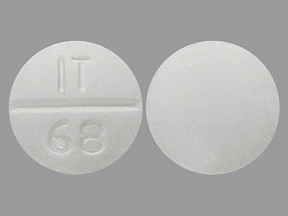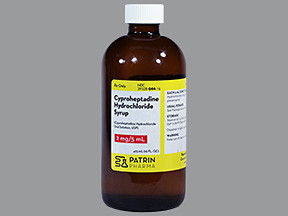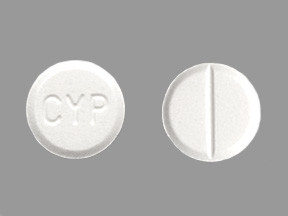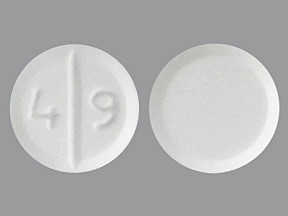CYPROHEPTADINE - ORAL
PHONETIC PRONUNCIATION: (SYE-proe-HEP-ta-deen)
COMMON BRAND NAME(S): Periactin
GENERIC NAME(S): cyproheptadine HCl
Uses
USES: Cyproheptadine is an antihistamine used to relieve allergy symptoms such as watery eyes, runny nose, itching eyes/nose, sneezing, hives, and itching. It works by blocking a certain natural substance (histamine) that your body makes during an allergic reaction. This medication also blocks another natural substance in your body (serotonin). This medication should not be used in newborn or premature infants.
How to use CYPROHEPTADINE - ORAL
HOW TO USE: Take this medication by mouth with or without food as directed by your doctor, usually 2 to 3 times a day. If you are using the liquid form of this medication, carefully measure the dose using a special measuring device/spoon. Do not use a household spoon because you may not get the correct dose. The dosage is based on your age, medical condition, and response to treatment. In children, the dosage may also be based on weight and body size. Do not increase your dose or take this medication more often than directed. Tell your doctor if your condition does not improve or if it worsens.
Side Effects
Precautions
Interactions
Overdose
Images
Reviews
Faq for CYPROHEPTADINE - ORAL
Cyproheptadine is an antihistamine medication that is used to relieve allergy symptoms such as watery eyes, runny nose, itching, and sneezing.
Cyproheptadine works by blocking the action of histamine, a substance in the body that causes allergy symptoms. It also has sedative effects, which can help with conditions such as insomnia or anxiety.
Cyproheptadine is commonly used to treat allergies, including seasonal allergies and hay fever. It can also be prescribed for the prevention and treatment of migraine headaches. In some cases, it may be used to stimulate appetite and promote weight gain in individuals with poor appetite or unintended weight loss.
Cyproheptadine usually comes in tablet form and is taken orally. It is typically taken two to three times a day, with or without food, as directed by your healthcare provider. Follow the dosage instructions carefully and do not exceed the recommended dose.
Common side effects of Cyproheptadine may include drowsiness, dizziness, dry mouth, constipation, blurred vision, and confusion. These side effects are usually mild and may go away on their own after some time. However, if they persist or become bothersome, you should contact your doctor.
Cyproheptadine can be prescribed to children, but the dosage may be adjusted based on the child's age and weight. It is essential to follow your healthcare provider's instructions and talk to a pediatrician if you have any concerns about its use in children.
Before taking Cyproheptadine, inform your doctor about any allergies, medical conditions, or medications you are currently taking. This medication may cause drowsiness, so it's important to avoid activities that require alertness, such as driving or operating machinery, until you know how it affects you.
The use of Cyproheptadine during pregnancy or breastfeeding should be discussed with a healthcare provider. It is generally recommended to avoid using this medication during these periods unless the benefits outweigh the potential risks.
Cyproheptadine may interact with certain medications, including sedatives, tranquilizers, and medications for Parkinson's disease. Inform your doctor about all the medications you are taking, including over-the-counter drugs and herbal supplements, to prevent any possible drug interactions.
Disclaimer
IMPORTANT: HOW TO USE THIS INFORMATION: This is a summary and does NOT have all possible information about this product. This information does not assure that this product is safe, effective, or appropriate for you. This information is not individual medical advice and does not substitute for the advice of your health care professional. Always ask your health care professional for complete information about this product and your specific health needs.





No Reviews Yet